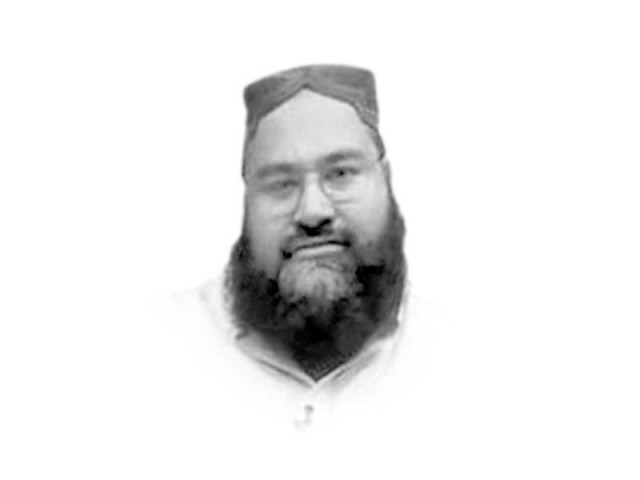The Kot Radha Kishan tragedy
If truth be told, the Kot Radha Kishan tragedy is a black blemish on the face of Pakistan, our religion and humanity

At the time of the Partition, it was claimed that Pakistan will be made a model state similar to Medina where humans will be respected, the difference between the powerful and the weak will be eliminated, and nobody will be declared guilty until their crime is proven. Unfortunately, after 67 years of independence, Pakistan is still not a state where there is supremacy of justice, and people are declared guilty on the basis of their religion or sect. There is no denying the fact that extremism and religious and sectarian prejudice have become a scourge in Pakistan since 1979. Our political and religious leaderships have failed to come up with a clear national strategy to get rid of this scourge. It will be wrong to declare the Kot Radha Kishan tragedy as just a one-off incident. The events related to this tragedy have raised many question marks. Finding the answers to these questions is not only the responsibility of the national political and religious leadership, but also of the society as a whole.
If we look at the factors which led to this tragedy, it can be said that many similar incidents have taken place in the past, but we have never witnessed this level of brutality and viciousness. If we try to understand the stance of the Christian community and local residents without discrimination, we can see that some pages of the Holy Quran may have been desecrated. Even if this had indeed happened, local residents did not fulfil the obligation that they were supposed to fulfil as Muslims and Pakistani citizens. The local police also displayed a very irresponsible attitude. The question is: even if we assume that the couple had committed the crime, why were they not arrested? If the couple was not arrested, why did local residents not take any legal action instead of resorting to violence? And if the couple was innocent, why was protection not offered to them?
If truth be told, the Kot Radha Kishan tragedy is a black blemish on the face of Pakistan, our religion and humanity. In order to remove this blemish, Pakistanis and Muslims will have to bring about a fundamental change, and that fundamental change involves refraining from making allegations against anyone on the basis of assumptions. If a person is guilty of blaspheming or any other crime, it is the responsibility of courts, rather than crowds, to punish them. Unfortunately, such incidents take place in Pakistan due to illiteracy, poverty, unemployment and the absence of the rule of law.
Whether it was the tragedy of Shanti Nagar or Gojra, Joseph Colony or the Ramsha Masih case, one thing is clear that all measures, which were taken on the basis of emotions without investigating, have undermined the blasphemy law. When critics of the blasphemy law demand its abolition, they are given the justification that this law should remain on the books, given the moral and social decay in society. The abolition of this law will provide a boost to those who want to run this society according to their own will and desires. They will accuse and target anyone for the sake of their personal interests. This law acts as a deterrent for those who think they are above the law and want to become self-appointed petitioners, judges and executioners.
As far as the wrong use of the blasphemy law is concerned, religious scholars believe that those who misuse it are as guilty as those who actually commit blasphemy. This is because if a person is wrongly accused of saying or writing something blasphemous, it means that those making wrong accusations are guilty of blasphemy. There is no denying the fact that the leaders of all non-Islamic religions in Pakistan have agreed that the blasphemy law should remain, but it is important to stop the wrong use of this law. Those who are really guilty should be punished whereas those making false blasphemy accusations against innocent people should be made a symbol of abomination.
The Pakistan Ulema Council (PUC) has a very clear stance about the Kot Radha Kishan tragedy. The PUC leaders expressed this stance together with Christian leaders at a press conference. According to that stance, those who are guilty should be punished but innocent people must not be targeted.
Published in The Express Tribune, November 11th, 2014.
Like Opinion & Editorial on Facebook, follow @ETOpEd on Twitter to receive all updates on all our daily pieces.













COMMENTS
Comments are moderated and generally will be posted if they are on-topic and not abusive.
For more information, please see our Comments FAQ